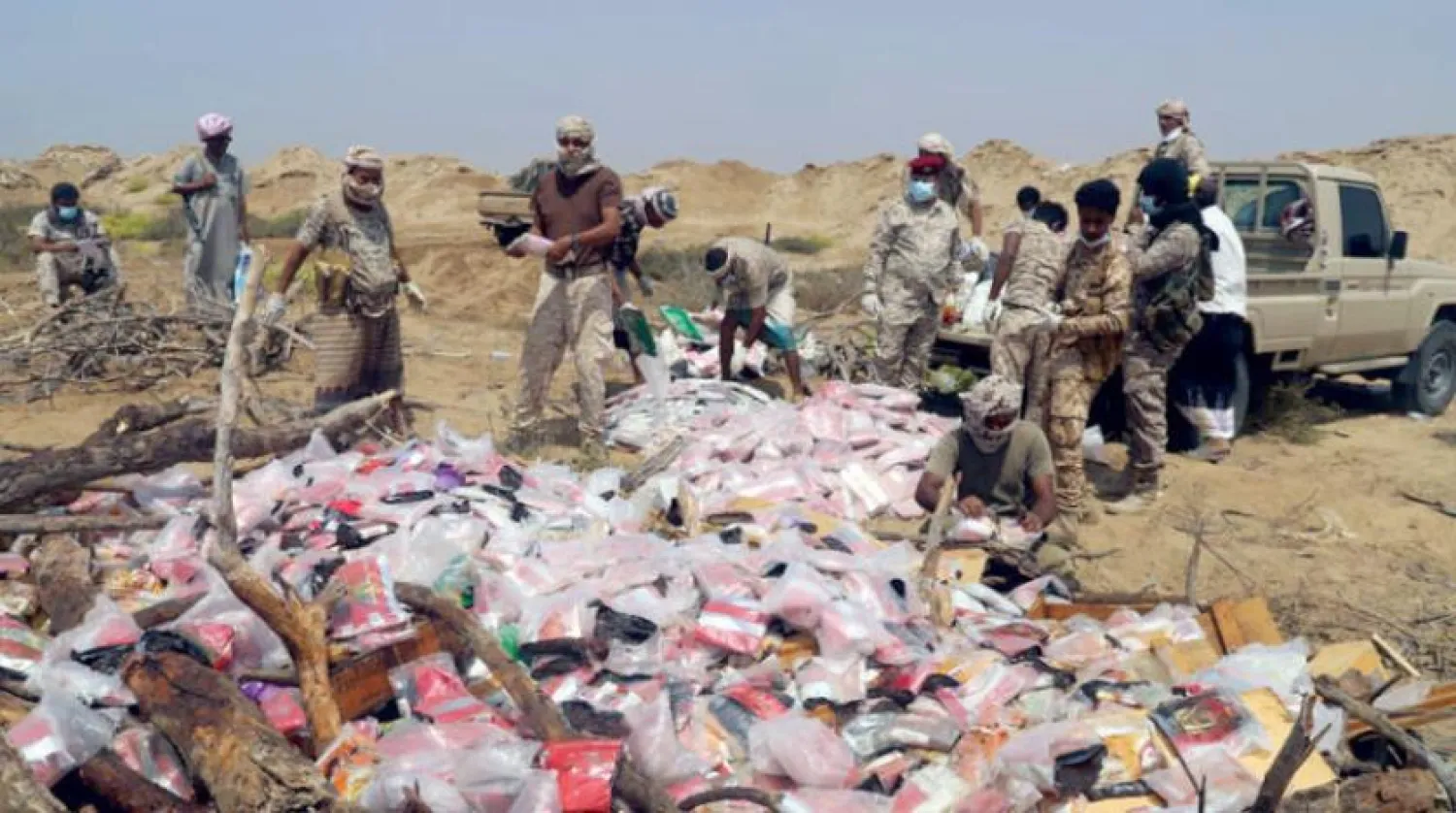Security officials in Yemen on Thursday destroyed a large quantity of hashish and thousands of narcotic pills, which were seized from smugglers linked to Houthi criminal gangs in the past four months, the Saudi Press Agency reported.
The National Army forces in the Fifth Military Region destroyed 1,158 kilograms of hashish and 7,700 illicit pills, which had been seized during the last four months, in the presence of the representative of the joint operations, representatives of the region’s intelligence and military police and security officials from the Hajjah governorate.
“Gangs linked to the Houthi militias rely on the trade of contraband as a source of financing for their war against the Yemenis, but the forces of the Fifth Military Region are on high alert to pursue and arrest hashish and drug smugglers in the governorate,” the statement said.
The move comes months after more than a ton of hashish and 48,000 narcotic pills were destroyed in October, bringing the total destroyed in the last three years to more than four tons.
Residents in Sanaa and other Yemeni regions accuse the Iran-backed Houthi militias of supervising the trade, sale, and promotion of drugs in their areas of control through gangs formed and supported by Houthi leaders. Houthis aim to strengthen their battlefronts with enormous wealth generated by drug trafficking.
Reports from Houthi-controlled areas reveal the involvement of prominent Houthi leaders in drug trafficking networks, Minister of Information, Culture and Tourism Muammar al-Eryani confirmed in an earlier statement.
The minister said this information “is an extension of the reports that confirm the involvement of the Tehran regime and its sectarian militias in the region, led by the Lebanese (Hezbollah) in the drug industry and trade.”
He accused Houthis of using their drug trade as a main source to finance their activities and help advance Tehran’s expansionist ambitions in the region.









